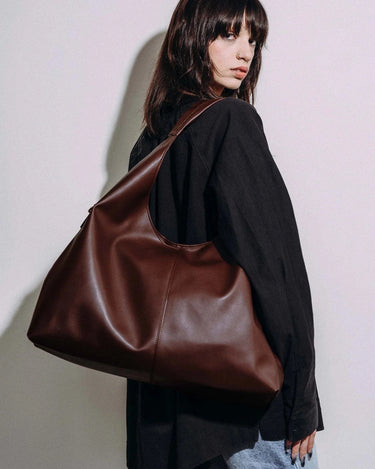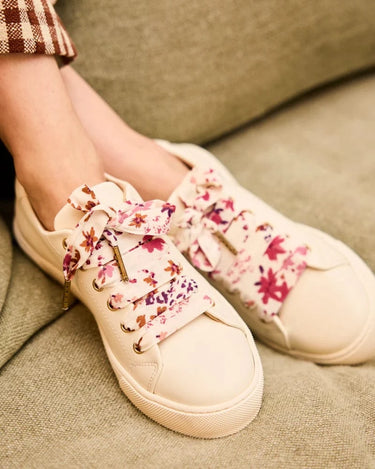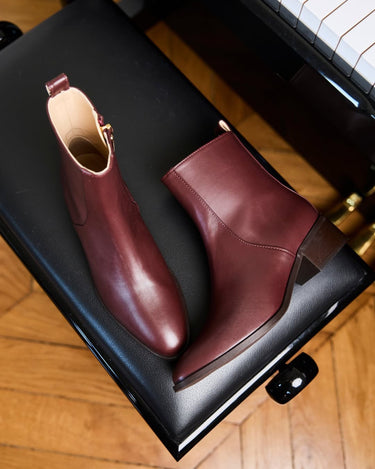Finding Positive Change Though the Coronavirus Crisis
Reminiscent of the Hollywood movie, Outbreak, the world is at war against a new highly contagious and aggressive virus. We are trapped in this surreal situation and are desperately waiting for it to unfold, like a movie, into a resolution with a happy ending. Real life, though, is rarely like the movies and for those millions of us who will have suffered from this epidemic – either through direct personal and/or economic loss – there will be no happy ending. However, we can always choose to look for the good things that come from bad situations … And we can choose to do things differently as the world ultimately emerges from this crisis.
By Giovanna Sessi-Knott: Designer and Founder of The Morphbag by GSK
What applies to the entire world during these challenging times, independently of where we are on the contagion curve, is that the world as we once knew it has changed across four dimensions: environmental, governmental, commercial and societal/individual.
Environmental

As country after country has been forced into some form of lockdown, the detrimental impacts on humanity and global commerce have become increasingly visible to us all. With over 70% of global commercial flights grounded, a high proportion of production facilities temporarily closed and significant other travel restrictions in place, Mother Nature’s rejuvenation response has been fast and clear. If we compare satellite images before and after lockdown in both China and Italy, we detect an obvious reduction in pollution. New York’s pollution measures are down by nearly 50%. There have also been scientific reports that a more varied marine life has been re-populating the Adriatic Sea following the absence of boats, cruise ships and cargo ships. This demonstrates that Mother Nature has an ability to regenerate, if we let her. Through scientific measurement, we will have thousands more data points from the COVID-19 era which will correlate our actions to environmental impact. We can only hope that this will strengthen the voice for sustainability post-coronavirus. More in my blog Could Corona be the Silver Lining for our Eco-System?
Governmental

In the words of Bill Gates, “few countries [governments] will get an A-grade” for either their pre-investment or earlier responses to COVID-19. However, there are several positive lessons that at least some governments appear to be making.
Firstly, that prevention saves more lives – and ultimately costs less – than treatment. Greater investment and global coordination in disease research, diagnostics and vaccine development is the right place to put greater funding.
Secondly, that underfunding of healthcare ultimately has the potential to negatively impact wider social and economic wellbeing. In light of this, governments are re-evaluating both the balance between the state and private commerce as well as healthcare’s share of government spend.
Finally, as stated by the Secretary-General of the UN: “the fury of the virus illustrates the folly of war”. Unfortunately, there are not many signs of this yet – with the recently announced Yemen ceasefire being an exception – but we can hope for an increasing sentiment throughout 2020 and beyond. The shared and equal vulnerability towards coronavirus has brought the whole world population to the realisation that we are all the same; we are all human. This new awareness brings hope that, once the fight against coronavirus is won and this pandemic becomes history, a new perspective on what really matters to us all will be born, and that there will be a farewell to arms, and rivalries and grudges will be buried.
Commercial

The short-term devastating impact on many (most) business sectors from COVID-19 is undeniable. However, following from this economic shock, it is possible we will see several structural changes to global commerce. One example of a potentially positive outcome could be a trend to more local sourcing. The globalisation trend of the past 30 years has in large part been driven by the ‘cheap’ labour of China and other developing economies, along with global just-in-time supply chain capabilities. For many businesses, the COVID-19 experience has signalled this to be an over-dependence which can be corrected through more automated (AI and robotics-enabled) localised manufacturing capability. This will help to contribute to a sustainable reduction in the carbon footprint mentioned above.
Societal/Individual

I think even before coronavirus, we were becoming used to the greatest positive changes happening at a societal/individual level, rather than being led by governments, institutions or large organisations. And I think this will be true of COVID-19 as well.
The lockdown has tested our ability to adapt and cope on multiple levels: how we live, how we socialise, how we work, how we keep levelled. Through the lockdown we have been forced into a metamorphosis in the way we live, work, play, socialise and shop. Life’s necessities, views and aspirations have been put upside down. Do not get me wrong, the lockdown is extremely challenging and for some it means the loss of ability to earn one’s living. Nevertheless, I do dare to say that I strongly feel that society has been grounded back to what is essential in life: health, community and love.
We finally realised that key workers are society’s heroes. Braving it out and exposing themselves to the risk of contagion – often with the great personal sacrifice of having to be isolated from their loved ones – they are working tirelessly to heal us, keep us safe and feed us. Society is seeing their value through a new lens. With this pandemic, society’s veneration flipped from venerating celebrities to healthcare workers, supermarket staff and other key workers. These are the true heroes of society, not athletes, actors and reality TV stars.
Additionally, despite the isolation, COVID-19 has actually driven a renewed sense of community. In whichever group of people we are part of, there has been growing recognition and a heart-warming sense of community and solidarity that we have not seen since WWII. Manifestations of this can be seen in the clapping for NHS staff every Thursday evening all the UK, in the singing and playing of music from balconies in Italy, to volunteers making masks out of fabric for hospices in Canada... the list is endless.
COVID-19 has also forced us to slow down. For many of us, there is no longer the hectic commute to work or collect kids from school – we have more time to ‘do’ things or learn new things. There is no longer the ability nor compulsion to go shopping, even when we don’t ‘need’ anything – a noticeable step-change toward slow fashion. There is no ability to travel for personal recreation – so we are rediscovering how to have fun at home with puzzles and board games and quiz nights and bocce in the garden. Lockdown is ‘forcing’ us to enjoy family more and also to realise who our true friends are through their remote actions, interactions and support.
As individuals we are (re)discovering the power of self-healing. Absent are many of the traditional ‘external’ interventions, so many of us are turning to self-healing philosophies to obtain/maintain mental wellbeing. Yoga, meditation, walking and other mindful activities have seen a dramatic increase through this crisis. For tips on how to make isolation more bearable, please refer to my blog Self-Isolation … and now what?
Rebooting with a Life-System Update

It is essential that the metamorphosis we are going through at this point in time will be material to the way we will live post the COVID-19 crisis.
Health will unequivocally be the most important value. We will have learnt that happiness comes from within and is found in the most basic things in life like a walk in fresh air, a board game played with family, a call with a friend, a cuddle and a kiss.
We will have learnt that whether we live as singles, in a partnership or a family, we are all part of a community and society – and are therefore interconnected.
We will have learnt that kindness goes a long way. Every act of kindness we sow into our community will be harvested back. Conscious decision making by making the ‘right’ choices brings goodness into our lives.
We remember that we are part of both small communities and the human race, and that we all share the same home; Mother Earth, which we need to respect for its resources and all the life that lives on it.
We will have learnt that we are interconnected with our eco-system and that this relationship seeks balance to thrive.
Let us be grateful for what we have, let us chase the right dreams, let us value the right people, let us be grounded. Carpe diem! But, as procrastination is the thief of time, let us not waste time to live, love and care.
Last but not least, we will have learnt that, in the face of a global threat, we can best fight the threat in unison and by helping each other.
About Giovanna
I am Giovanna Sessi-Knott, designer and founder of The Morphbag by GSK, a handbag concept set to merge colour versatility and functionality in one product, in order to reduce the need to buy multiple handbags, and to promote slow fashion. I am proud that The Morphbag by GSK is a brand on Immaculate Vegan, whose values, vision and mission I share – for a more ethical and sustainable fashion industry, with no compromise in style and quality.
For articles like this in your inbox, sign up to our newsletter, and get 10% off your next purchase too.
Related Articles

How To Have A Very Vegan Valentine's Day

Why Veganuary Is Still Relevant















































































































